You and Your Bike Are Welcome Aboard Metra
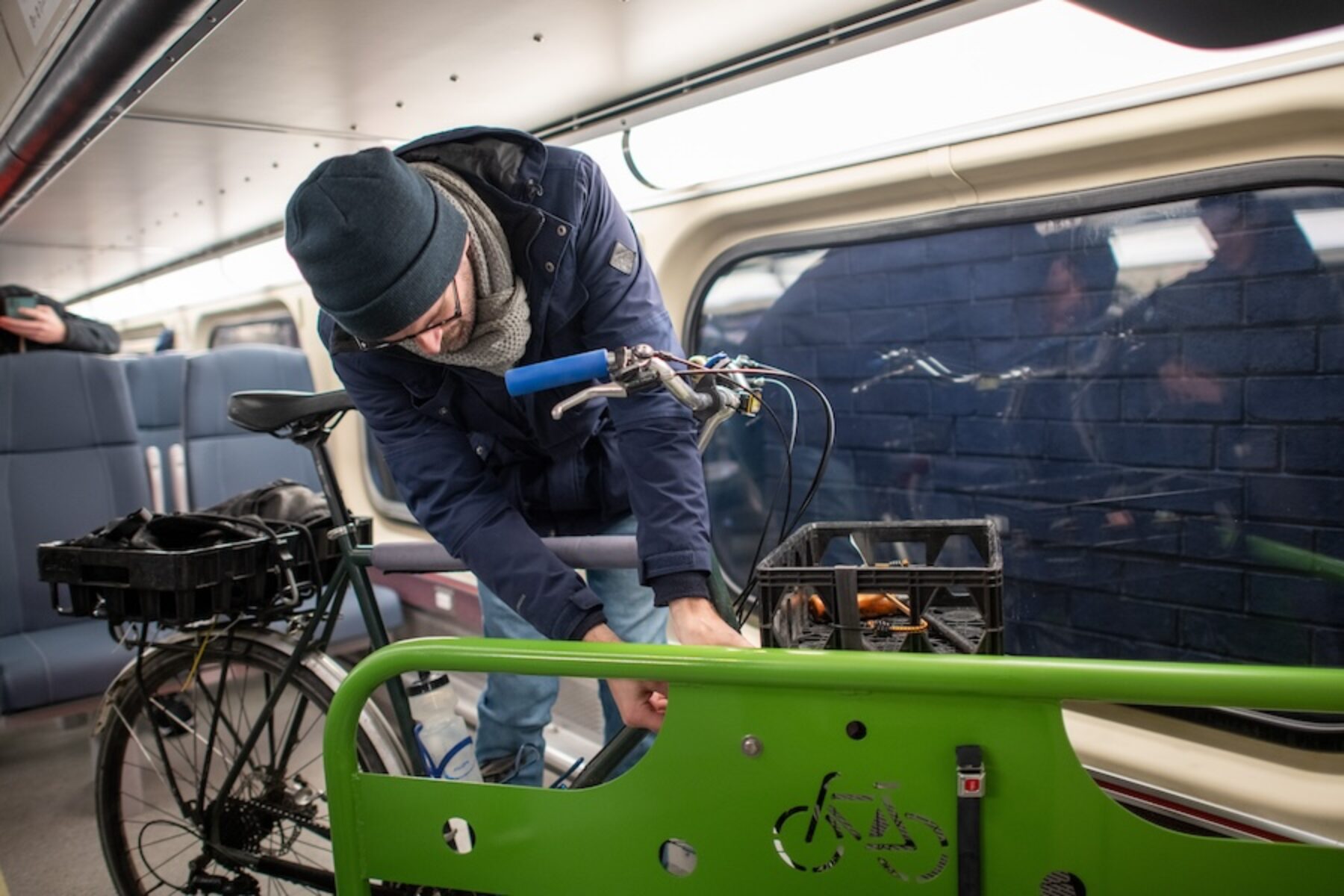
If you are coming to Chicago, bring your bike. Metra will welcome you aboard its trains!
On Nov. 7, 2020, during the height of the COVID-19 pandemic, Metra, Chicago’s commuter transit system, introduced its very first Bike Car. At the end of 2023, Metra recorded 260,000 annual passengers with bicycles—an all-time record.
Prior to 2020, Metra had permitted bikes on non-rush-hour trains in limited areas, but the soaring demand for safe places to enjoy outdoor recreation opportunities during the pandemic restrictions—and a call from bike enthusiasts for Metra to provide room for more for bicycles on trains—led to this three-year evolution that has changed the way people get around in Chicagoland.
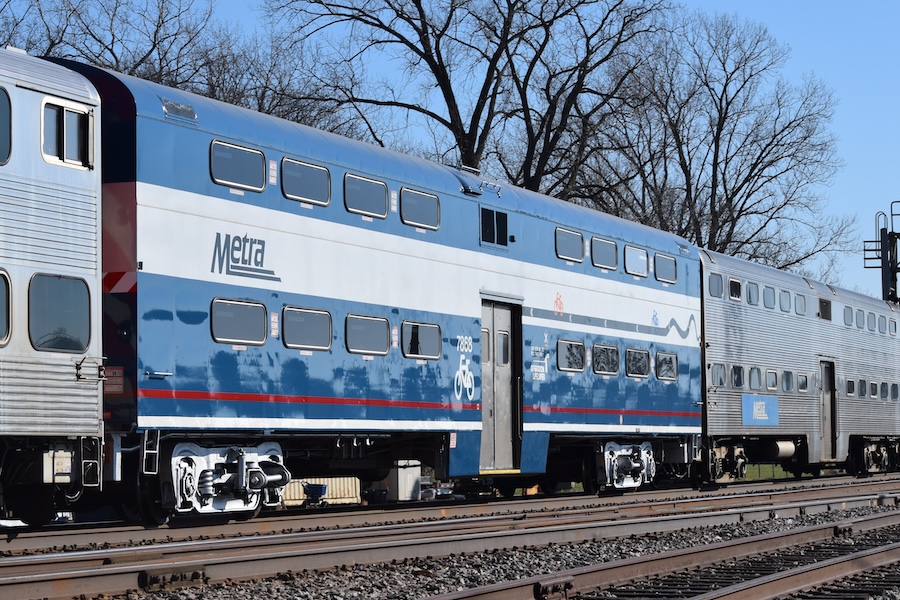
Serving a six-county area in the northeast corner of Illinois, Metra provides rail passenger service on 11 lines and host the trains of the South Shore Line that connects Northwest Indiana and Chicago. Pre-pandemic, Metra operated nearly 700 trains each weekday, providing over 275,000 passenger trips. Metra has since restored service to more than 95% of pre-COVID levels, and weekday ridership is rebounding.
The first bike car entered service on Metra’s Milwaukee District North Line that operates between Chicago and Fox Lake, which is located in Illinois’ Chain O’ Lakes area in the far northwestern corner of Lake County—near the Wisconsin state line. A number of forest preserves, lakes and networks of bike trails are located along this rail line, which hosts a large number of cyclists who are reverse commuters—people who travel with their bicycle on a regular basis from their homes in Chicago to their jobs in the suburbs.
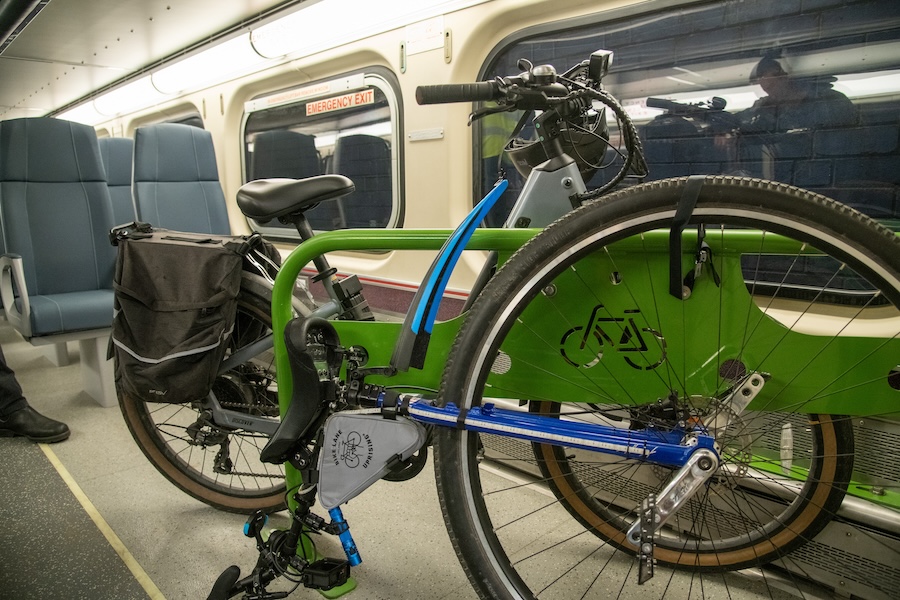
Two days later, on Nov. 9, Metra relaxed it rules by allowing bikes to be carried on rush hour trains (based on available space). The reaction to this announcement was way beyond expectations. Social media exploded with positive comments. Rave reviews were received from many constituencies. From Metra’s perspective, it was a case of getting the proverbial “million dollars’ worth of publicity for free.”
Due to this immediate positive reaction, a second Bike Car entered service on the Milwaukee North Line in December 2020, doubling the frequency and capacity of service. It should not go unnoticed that this burst of new business came at the start of one of Chicago’s classic winters. People viewed Metra as a safe and socially distanced way to reach family-oriented outdoor activities in the midst of the COVID lockdown.
“We’re committed to being part of a regional transportation network, which includes supporting the cycling community by making Metra an accessible part of their trip.”
—Jim Derwinski, Metra’s CEO and Executive Director
From Pilot to Permanent
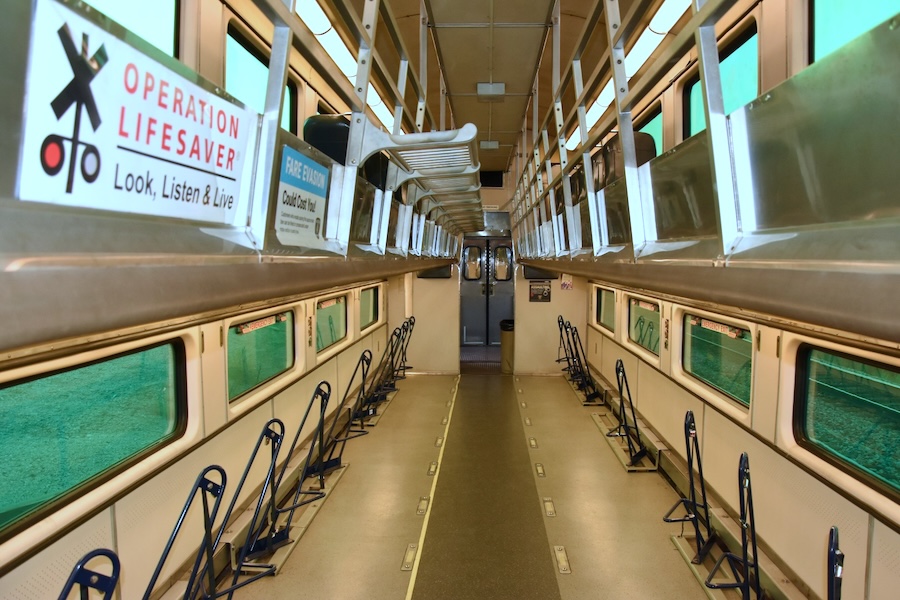
Part of the beauty of this program is the sustainable way it has been implemented. Bike Cars are former coach cars built in the 1960s that have been recycled back into service from long-term storage. Metra’s bi-level cars have two compartments with a center entrance. To create the Bike Cars, the seats on the lower level of one compartment were removed. In their place, bike racks were installed for 16 bicycles. (A standard coach car has space to park five bicycles.) With the “new” Bike Cars, people can now sit in the seats on the upper deck and watch their bicycles as they ride to their destination.
Ultimately, it is a relatively inexpensive way to meet a growing customer market and provide new options without any capital investment. And they really stand out—these 1960s-era coach cars are of carbon steel construction with painted sides, much in contrast to Metra’s fleet of stainless-steel, bi-level coach cars. For optimal visibility, they’ve been given a very distinctive blue and grey paint scheme with a large bicycle logo.
What was initially intended to be a pilot project until Spring 2021 became a permanent service feature. On May 15, 2021, Bike Cars were added on the BNSF Line to Aurora, Illinois, and the Rock Island District Line to Joliet, Illinois. Cyclists could now ride out on one line, cycle to another line and come home on that line. Weekend excursion tickets ($7 for a single day, $10 for the weekend) allow passengers to ride on any line for a single fare.
By 2023, Metra had 14 Bike Cars operating on eight of its 11 lines.
Jim Derwinski, Metra’s CEO and executive director, emphasized the environmental benefits of getting people out of their automobiles and on trains, and the intention of providing new venues for family outdoor recreation. “We’re committed to being part of a regional transportation network, which includes supporting the cycling community by making Metra an accessible part of their trip,” said Derwinski. “We’re hopeful it will create new options for residents looking for … ways to get out of the house in a safe and socially distanced way. We look forward to seeing some of the region’s more dedicated cyclists using this new amenity over the winter and to welcoming everyone else aboard in a few months.”
The success of this service speaks to the validity of Jim’s vision.
Rails, Trails and Ales
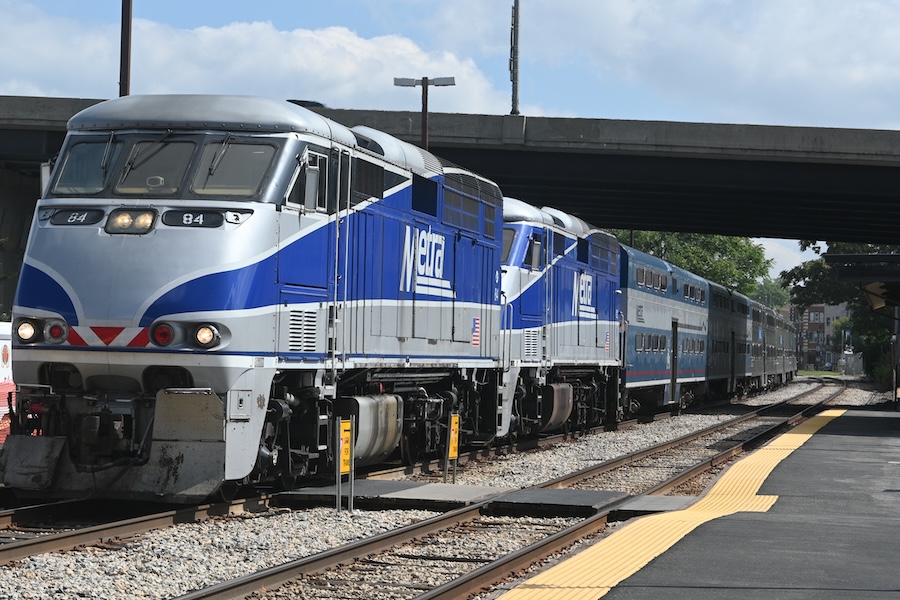
In 2021, Metra inaugurated the Rails, Trails and Ales service on Saturdays in September and October. This service is offered on Metra’s Heritage Corridor, the former Gulf Mobile & Ohio/Illinois Central Gulf corridor between Chicago and St. Louis via Joliet, Bloomington, Springfield and Alton, Illinois.
The Heritage Corridor is so named due to the opening of the Illinois and Michigan Canal in 1848, which connected Lake Michigan and the Chicago River with the Illinois River—allowing for commercial navigation between Chicago and New Orleans. Metra’s commuter trains serve the Des Plaines River Valley, where you’ll find some of the most interesting geological features of the Chicago region, especially in the adjacent Palos area.
There are many biking and hiking trails in this area, in addition to lakes, ponds and sloughs, and steep grades into and out of the river valley. This provides for numerous opportunities for both easy and challenging outdoor activities. Within the Heritage Corridor is a large number of attractions—as well as many breweries (hence, ales) and restaurants to add to the day’s enjoyment. Learn more about Rails, Trails and Ales, and access a list of attractions along the line, on the Metra website.
Advocacy Works
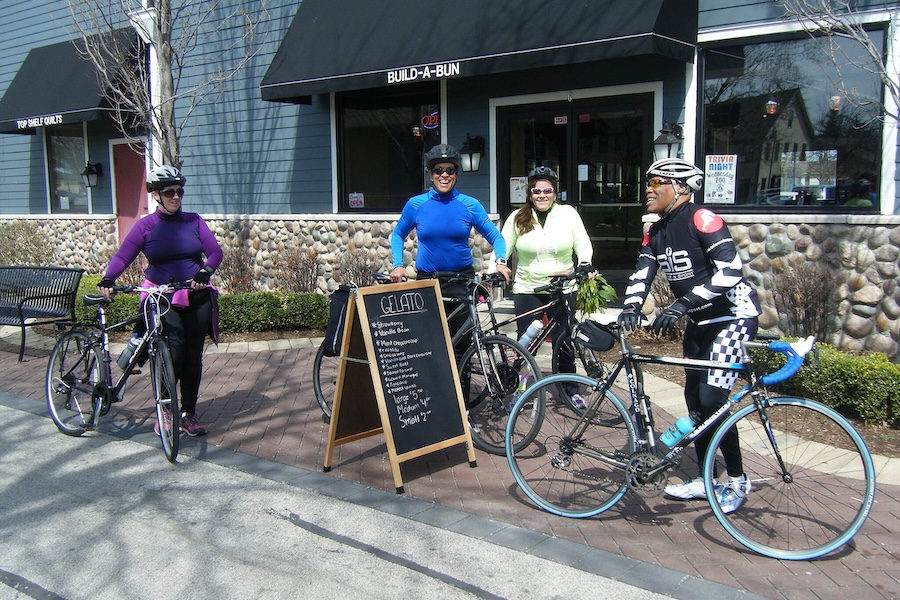
During 2023, a number of advocacy groups prompting the use of bicycles as transportation advocated for Metra to expand the number of Bike Cars and make its bicycle policy permanent. Metra, in turn, formed a working group to explore the issue and make a recommendation to senior executive management. In January 2024, Metra’s Board of Directors unanimously—and historically—approved the cooperative group’s recommendations, with bicycles, electric bikes, scooters and foldup bikes now permitted on many of its trains.
Metra has made a commitment to modify 50 of its modern stainless-steel passenger cars to become “Bike Cars 1.5.” Current plans also include making space for bikes on 200 Alstom cars that Metra is purchasing, which are going through final design review.
The new policy is viewed as a win-win-win for all concerned.
“We are truly grateful to the passionate cyclists who helped us change our policy for the betterment of all riders. Metra and bicycles are natural partners, and it is gratifying to solidify our relationship,” said Derwinski.
Metra Bicycle Guidance
On Metra Bike Cars, conductors have discretion in limiting the number of bikes on crowded trains—and when the space is needed to accommodate passengers with disabilities. Check out Metra’s website or more guidance on their bicycle policy.
So, if you are thinking about a recreational trip and are looking for a transportation source that will welcome you and your bicycle, come to Chicagoland. There are many opportunities for outdoor recreation and entertainment (with group travel arrangements being offered by Metra).
Metra welcomes you any your bicycle aboard!
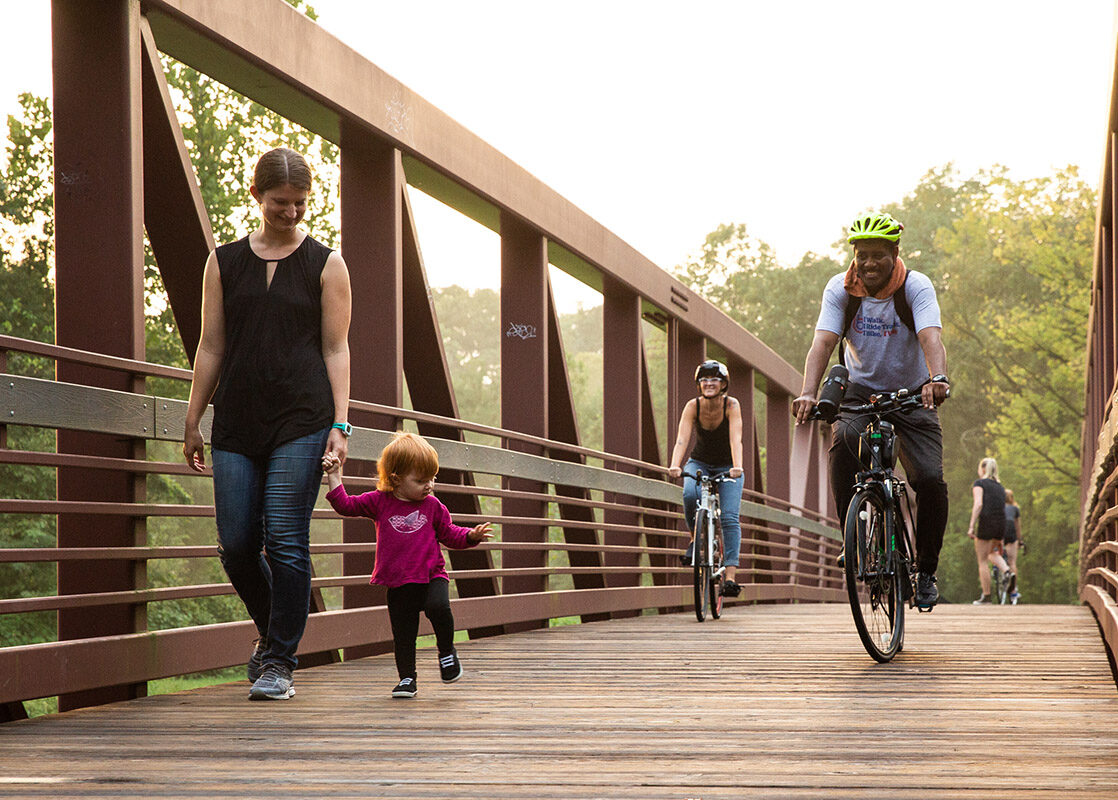
Donate
Everyone deserves access to safe ways to walk, bike, and be active outdoors.
